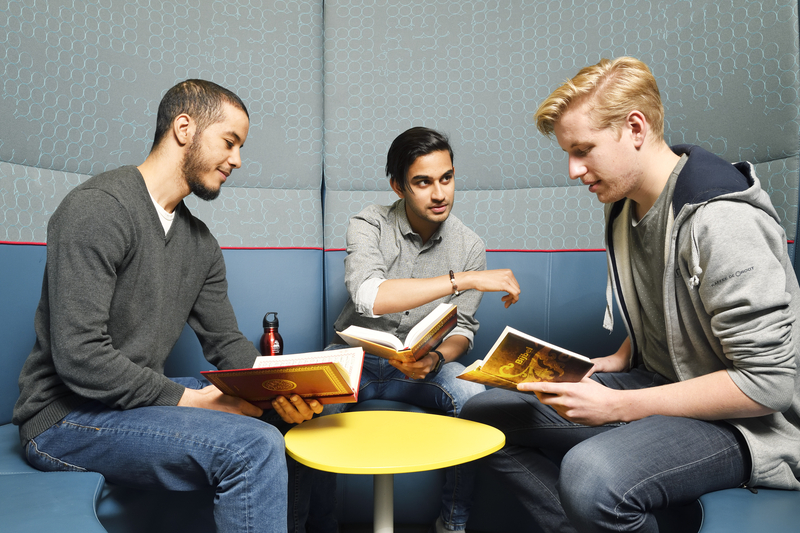
- Student
- 20/11/2017
Special Diversity | Belief in God, Allah and Mata Amritanandamayi Devi
Jaap Schouten believes in God, Marwan Mrait in Allah and Arun Babu worships Mata Amritanandamayi Devi. The three TU/e students are meeting for the first time but their backgrounds and religions provide enough starting points for an interesting and lively discussion.
With interest, curiosity and at time amazement - for example when Jaap and Marwan hear from Arun how many gods Hinduism recognizes (no fewer than 33 million), the three students listen to each other describe how they practice their religion and what it means to them. For all three, the practice goes well beyond the rituals, such as prayer, celebrating Diwali or going to the mosque; it's about how their live life and how they interact with others. For Jaap, a Bachelor's student of Mechanical Engineering, for example, Christianity symbolizes charity. “Treat others as you yourself would be treated. And love others.”
Singing the 108 names of your guru
Jaap prays every day and reads a passage from the Bible, he has regular discussions with other members of the Christian student association Ichthus, and you'll find him in church almost every week. Similarly for the other two students, their religious practice is woven into their daily lives. Arun starts the day at 06.30 hrs with Integrated Amrita Meditation; a 20-minute yoga session. After showering, he spends 45 minutes 'singing' the 108 names of his guru, followed by a Mahishasura Mardini Stotram, a hymn of praise of the Divine Mother.
Likewise for Marwan the day starts early; his first prayer is said at sunrise. Throughout the day another four follow, each lasting about two minutes. When he's on campus he usually spends this time in the quiet room. A couple of times a week, Marwan goes to the mosque and speaks to members of the recently established Islamic student association Salaam.
No belief? “Atheists are missing out”
For all three students, their belief in ‘their’ god is a deliberate choice. “As a child I went to church with my parents,” says Jaap. “At about the age of sixteen I had serious doubts. Still, after a while I resumed my active involvement in my belief. Without it, life feels so empty, has so little meaning.” Marwan senses exactly what he means. “Atheists are missing out. No belief in life after death, no spirituality.”
Arun is convinced that each person must undertake a quest both for and within a religion. “You mustn't follow blindly because it's something others are doing.” Personally, he is now treading the path to becoming a monk and this involves - remotely - being guided by his guru.
The three students could go on talking for hours about each other's beliefs and the differences and similarities, but it is time to go to lectures and to study. Because whether Muslim, Christian or Hindu, in all religions knowledge is important.
Discussion